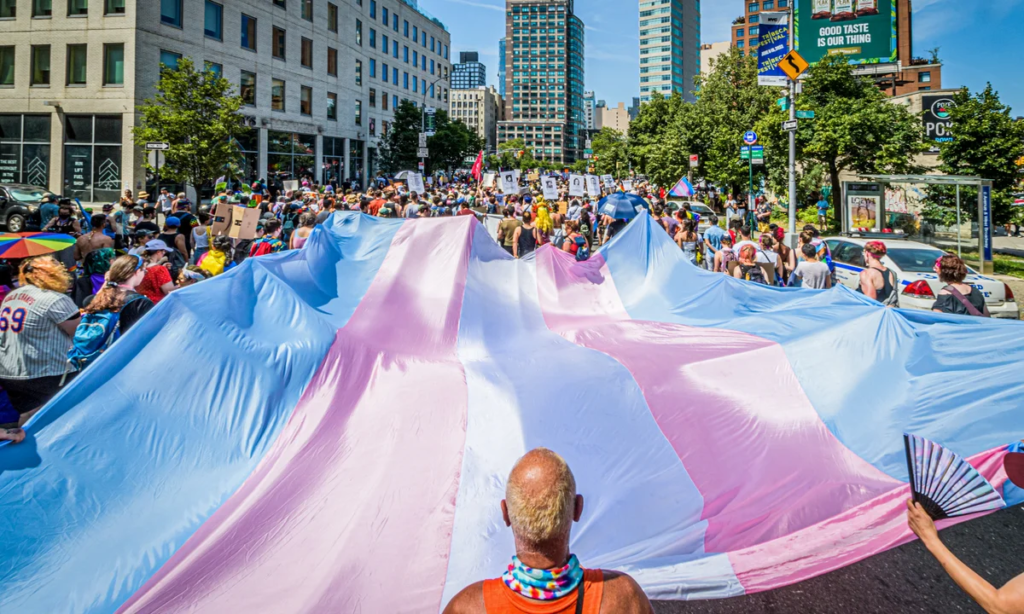Under President Javier Milei, Argentina Bans Gender Change Treatments and Surgeries for Minors, along with new restrictions on the placement of trans women in women’s prisons.
This decision has sparked intense debate within Argentina and across the global community, particularly among human rights organizations and LGBTQ+ advocacy groups.
The move aligns with Milei’s broader ideological stance against what he calls “gender ideology” and progressive social policies. While gender-affirming medical procedures for minors were already rare in Argentina, the ban represents a significant rollback of trans rights in the country.
A Shift in Argentina’s Gender Identity Policies
Argentina has long been recognized as a progressive nation in terms of gender identity rights. In 2012, the country became a pioneer by passing the Gender Identity Law, which allowed individuals to change their gender on official documents without the need for medical interventions or judicial approval.
The law also permitted access to hormone therapy and gender-affirming surgeries for those who sought them, including minors, as long as they had parental consent and medical evaluation.
Under the new decree issued by President Milei, this legal framework is set to change. His administration argues that the government must protect minors from making irreversible decisions at a young age.
Read : Argentina Withdraws from WHO After US’ Exit Announcement
Milei’s office described gender-affirming treatments for children as “child abuse” and emphasized the need to curb what they call the “extremes of gender ideology.” The government’s statement suggests that minors should not be subjected to psychological or medical pressures to undergo gender transitions.
Read : Global Gender Gap Will Take 134 Years to Close: WEF Report
Critics of this decree argue that it disregards the medical consensus on gender dysphoria in minors. Major medical organizations, including the World Health Organization (WHO) and the American Academy of Pediatrics, recognize gender-affirming care as a necessary treatment for gender dysphoria. Blocking access to such care, they argue, could increase mental health issues such as depression and suicide among trans youth.
The Prison Policy Controversy
Alongside the ban on gender-affirming care for minors, President Milei’s administration has also introduced a new policy on the housing of trans women in Argentina’s prison system.
According to the decree, prisoners will now be placed in facilities based on their gender as recorded at the time they committed a crime. This means that trans women who were legally recognized as female but had not yet transitioned at the time of their offense may be housed in men’s prisons.
Additionally, the policy explicitly prohibits trans women from being placed in women’s prisons if they have been convicted of sexual crimes, human trafficking, or violent offenses against women.

The government claims that these measures are necessary to protect cisgender female inmates from potential harm. However, the decree does not provide data on how many trans women in Argentina’s prison system have been convicted of such crimes.
LGBTQ+ rights groups and human rights organizations argue that placing trans women in men’s prisons puts them at high risk of violence and abuse.
Studies have shown that transgender individuals are significantly more likely to experience sexual assault, physical violence, and discrimination within the prison system. Critics believe that this policy ignores the realities of prison violence and will likely increase the risks faced by incarcerated trans individuals.
Milei’s approach mirrors similar policies in other countries where conservative leaders have sought to restrict trans rights in correctional facilities. In the United States, for example, former President Donald Trump attempted to reverse policies that allowed trans women to be housed in women’s prisons.
Although a U.S. judge recently blocked Trump’s executive order on this matter, it reflects a growing trend among right-wing leaders who oppose gender-affirming policies in the prison system.
The Political and Social Fallout
The ban on gender-affirming care for minors and the changes to Argentina’s prison policies have triggered widespread protests and condemnation from LGBTQ+ organizations, feminist groups, and human rights advocates. In recent weeks, thousands of Argentines have taken to the streets to demand the protection of trans rights.
The Argentina LGBT+ Federation has vowed to challenge the decree in court, arguing that the president does not have the authority to unilaterally override existing laws.

International human rights organizations, including Amnesty International and Human Rights Watch, have criticized Milei’s decision, calling it a regressive step that undermines the rights of transgender individuals.
They warn that such policies could set a dangerous precedent for other countries in Latin America, where trans rights have been gradually advancing in recent years.
At the heart of this debate is a larger ideological struggle over gender, identity, and human rights. Milei’s rhetoric against feminism, LGBTQ+ inclusion, and progressive social policies has fueled polarization in Argentina.
During his speech at the World Economic Forum in Davos, he labeled progressive ideologies as a “cancer” that must be removed from society. This aggressive stance has endeared him to conservative voters but has also mobilized opposition from a broad coalition of social movements.
As legal battles over this decree unfold, the future of trans rights in Argentina remains uncertain. While Milei’s government is pushing forward with its agenda, resistance from civil society, legal challenges, and international pressure could influence the final outcome.
For now, the ban on gender-affirming care for minors and the prison policy changes represent a significant shift in Argentina’s approach to gender identity, marking a stark departure from its previously progressive stance.

